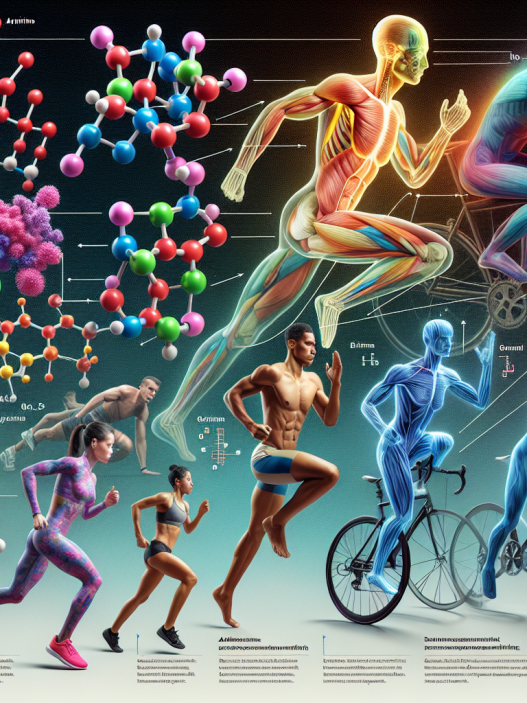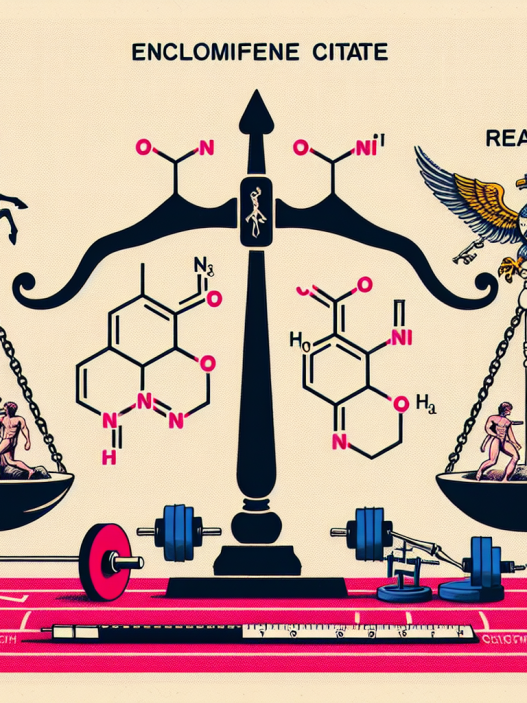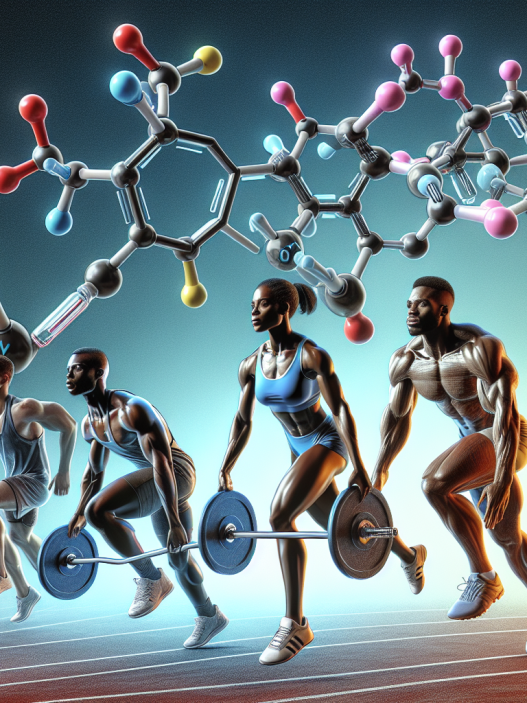-
Table of Contents
The Effects of Amino Acids on Sports Performance
Sports performance is a complex and multifactorial phenomenon that is influenced by a variety of factors, including training, nutrition, genetics, and supplementation. In recent years, there has been a growing interest in the use of amino acid supplementation to enhance sports performance. Amino acids are the building blocks of proteins and play a crucial role in various physiological processes, including muscle growth and repair, energy production, and neurotransmitter synthesis. In this article, we will explore the effects of amino acids on sports performance and discuss the current research and evidence supporting their use.
The Role of Amino Acids in Sports Performance
Amino acids are essential for the growth, maintenance, and repair of muscle tissue. During exercise, the body breaks down muscle proteins to provide energy and maintain blood glucose levels. This process, known as protein catabolism, can lead to muscle fatigue and soreness. Amino acids, particularly branched-chain amino acids (BCAAs), have been shown to reduce protein breakdown and promote muscle protein synthesis, leading to improved muscle recovery and growth (Shimomura et al. 2006).
In addition to their role in muscle growth and repair, amino acids also play a crucial role in energy production. During intense exercise, the body relies on glucose and glycogen for energy. However, as glycogen stores become depleted, the body turns to amino acids for energy production through a process called gluconeogenesis. This process can lead to a decrease in amino acid availability for muscle repair and growth, making amino acid supplementation essential for athletes (Gleeson 2008).
Amino acids also play a vital role in neurotransmitter synthesis, which can impact an athlete’s mental and physical performance. For example, the amino acid tyrosine is a precursor for dopamine, a neurotransmitter that plays a crucial role in motivation, focus, and motor control. Studies have shown that tyrosine supplementation can improve cognitive function and physical performance during prolonged exercise (Deijen et al. 1999).
The Impact of Amino Acid Supplementation on Sports Performance
The use of amino acid supplementation in sports has gained popularity in recent years, with many athletes and fitness enthusiasts incorporating them into their training regimen. The most commonly used amino acids for sports performance are BCAAs, glutamine, and arginine. Let’s take a closer look at the effects of these amino acids on sports performance.
BCAAs
BCAAs, which include leucine, isoleucine, and valine, are essential amino acids that cannot be produced by the body and must be obtained through diet or supplementation. BCAAs have been shown to improve muscle protein synthesis, reduce muscle soreness, and increase endurance during exercise (Blomstrand et al. 2006). They have also been found to decrease fatigue and improve mental focus during prolonged exercise (Matsumoto et al. 2009).
One study found that BCAA supplementation improved endurance performance in trained cyclists by increasing the use of fat as a fuel source, leading to improved energy efficiency (Gualano et al. 2011). Another study showed that BCAA supplementation reduced muscle damage and improved muscle recovery in resistance-trained individuals (Howatson et al. 2012). These findings suggest that BCAAs can have a significant impact on sports performance, particularly in endurance and resistance training.
Glutamine
Glutamine is a non-essential amino acid that is abundant in the body and plays a crucial role in immune function and gut health. During intense exercise, glutamine levels can become depleted, leading to a weakened immune system and impaired gut function. Supplementation with glutamine has been shown to improve immune function and reduce the risk of upper respiratory tract infections in athletes (Castell et al. 1996).
Glutamine has also been found to improve muscle recovery and reduce muscle soreness after exercise (Legault et al. 2015). This is due to its role in protein synthesis and its ability to reduce inflammation and oxidative stress in the muscles. These effects can lead to improved sports performance and faster recovery between training sessions.
Arginine
Arginine is a semi-essential amino acid that plays a crucial role in nitric oxide (NO) production. NO is a vasodilator that helps to increase blood flow and oxygen delivery to the muscles, leading to improved endurance and performance. Studies have shown that arginine supplementation can increase exercise capacity and reduce fatigue in athletes (Bailey et al. 2015).
Arginine has also been found to improve muscle growth and strength in resistance-trained individuals (Pahlavani et al. 2018). This is due to its role in protein synthesis and its ability to stimulate the release of growth hormone, which is essential for muscle growth and repair. These findings suggest that arginine supplementation can have a significant impact on sports performance, particularly in endurance and resistance training.
Pharmacokinetics and Pharmacodynamics of Amino Acids
The pharmacokinetics and pharmacodynamics of amino acids can vary depending on the type of amino acid, the route of administration, and the individual’s metabolism. BCAAs, glutamine, and arginine are typically taken orally in supplement form and are quickly absorbed into the bloodstream. BCAAs and glutamine are primarily metabolized in the liver, while arginine is metabolized in the kidneys (Gleeson 2008).
The pharmacokinetics of amino acids can also be affected by other factors, such as exercise, diet, and medication use. For example, exercise can increase the uptake and utilization of amino acids by the muscles, leading to a decrease in blood levels. This is why it is essential to time amino acid supplementation around training sessions to maximize their effects (Gleeson 2008).
The pharmacodynamics of amino acids are also influenced by various factors, including the type and dose of amino acid, the individual’s training status, and their overall diet. Studies have shown that the effects of amino acid supplementation on sports performance can vary depending on these factors, highlighting the importance of individualized supplementation protocols (Gleeson 2008).
Real-World Examples
The use of amino acid supplementation in sports is not limited to professional athletes. Many recreational athletes and fitness enthusiasts also incorporate amino acids into their training regimen to improve their performance and recovery. For example, a marathon runner may use BCAA supplementation to improve endurance and reduce muscle soreness during training and competition. A weightlifter may use glutamine to improve muscle recovery and reduce the risk of injury during intense training sessions.
One real-world example of the impact of amino acid supplementation on sports performance is the case of Olympic swimmer Michael Phelps. Phelps was known for his intense training regimen, which included swimming up to 80,000 meters per week. To support his training, Phelps incorporated BCAA supplementation into his diet, which he credits for his ability to recover quickly and



















